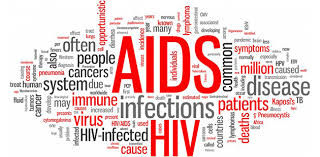Let’s walk the talk, PSGDN urges leaders
- webmaster13878
- Mar 22, 2022
- 4 min read
On Zero Discrimination Day this year, the Pacific Sexual and Gender Diversity Network is calling on Fijians and Pacific Islanders to speak up when they see something not fair, right or just.
PSGDN chief executive officer Isikeli Vulavou says the day is significant because it calls out discriminatory laws that result in Lesbian, Gay, Bisexual, Transgender, Queer, Intersex (LGBTQI) people being treated differently, omitted from essential services or being subject to restrictions on how they live their lives, simply because of who they are, what they do or who they love.
Zero Discrimination Day is marked annually on March 1 to celebrate the right of everyone to live a full and productive life—and live it with dignity, specifically focusing on eliminating discrimination against people living with HIV. The theme for this year is “Remove Laws that Harm, Create Laws that Empower”.
Vulavou says the LGBTQI community in Fiji and the Pacific, including those who engage in sex-work for a living are often targeted as a result of discriminatory laws that deny their human rights and fundamental freedoms.
With an estimated 5.8 million people living with HIV in the region, for the LGBTQI community, HIV and HIV-related stigma and discrimination have become dual epidemics.
“The epidemic continues to disproportionately impact certain members of the LGBTQI community and sex workers, creating gaps and hindering progress in HIV prevention.”
Vulavou says the perception that LGBTQI people and sex workers spread HIV needs to change, as it limits people living with HIV accessing health services.

“Instead, we need to create an enabling environment that encourages people to go for HIV tests, receive adequate treatment and care and help reduce the spread of the virus.
The CEO said confronting inequalities and ending discrimination faced by LGBTQI people and sex-workers is critical to ending AIDS in the Pacific.
“Recent researches show that gay men and other men who have sex with men are twice as likely to acquire HIV if they live in a country with punitive approaches to sexual orientation than if they live in a country with supportive legislations. ”
Vulavou said to push progress, Pacific governments must mount the strongest possible response to the epidemic in the form of fully funded public health programs, as well as common sense policy solutions such as comprehensive sex education and awareness on the effects of stigma.
The CEO has also called on the governments of Cook Islands, Kiribati, PNG, Samoa, Solomon Islands, Tonga and Tuvalu, who still criminalize sodomy and/or homosexuality, to repeal these harmful laws that legally prescribe punishments for consensual same-sex sexual relations.
“Many Pacific countries still criminalize sex-work or some aspect of sex work, disallow same-sex marriage, do not allow one to legally change their gender or permit same-sex couples to legally adopt a child.
“Such systematic discrimination reinforces the disadvantages experienced by the LGBTQI people and can be used as justification for violence against them, whether on the street, in the community, at home, or in prison.”
Vulavou says there is an urgent need to relook at these repressive laws and take action to end the inequalities and discrimination that they endorse.
“States have a moral and legal obligation to remove discriminatory laws and to enact laws that protect people from discrimination.”
The CEO also stated that education providers in the region should become more inclusive, promote diversity, and remove discriminatory norms and practices against LGBTQI students.
At schools and universities, many LGBTQI people continue to face abuse, physical violence, social isolation, humiliation, and death threats that result in feelings of unsafety, missed school days, and reduced chances of academic success.
“Due to such abuses in educational settings, LGBTQI youth are more likely to drop out of school, go back to their villages and face the cycle of discrimination again or many end up committing suicide.
“In many instances, some who return to their homes are ostracized by their families, and kicked out of their homes.
These LGBTQI people are often picked up from the streets by other LGBTQI people, and many end up in sex work because they don’t have any other means of survival.”
The CEO also outlined the discrimination margainalised groups such as the LGBTQI face during and after a natural disaster, socially repressed and often excluded during national responses.
Vulavou said Pacific leaders should not only talk about the social inclusion of the LGBTQI community, but walk the talk and make meaningful contributions.
“Inclusion requires dismantling all legislations that criminalizes sexual orientation and gender identity or expression, and that negates a person’s identity. It also requires urgent measures to dismantle the systems of repression that enforce the idea that diversity in sexual orientation and gender identity is somehow harmful to society.
“PSGDN calls on Fiji and the Pacific governments to develop robust legal frameworks and policies that protect LGBTQI people from discrimination in all sectors and our leaders must learn to celebrate diversity and challenge structures and norms that limit the contribution and representation of LGBTQI people in the Pacific.
“States must recognize the intersectional nature of discrimination and exclusion, address their root causes, and ensure meaningful participation of LGBTQI people in decision-making processes.”
Ends...




Comments